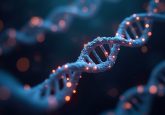Blood samples can tell of dietary compliance

Results from the Nordic SYSDIET study have shown that blood samples can be used to assess dietary compliance, through testing for diet-related biomarkers.
New results from the Nordic SYSDIET study show that it is possible for an individual’s adherence to a diet to be assessed from a blood sample. In the study, recently published in The Journal of Nutrition, it was possible for the Scandinavian researchers to identify specific participants who had the greatest apparent compliance to a healthy Nordic diet. They were able to do this by testing for a set of diet-related biomarkers in the blood of the 154 study participants.
The beneficial effects of this diet on cardiometabolic risk factors, such as elevated blood pressure and blood lipids, were also greatest in this group. The study was conducted by researchers from the universities of Uppsala, Aarhus, Copenhagen, Eastern Finland, Iceland, Lund, Oulu and CTT Technical Research Centre of Finland, as well as Kuopio and Oulu University Hospitals.
The recommended healthy Nordic diet, which the intervention group in the SYSDIET study was advised to follow, is rich in berries, vegetables, fatty fish, canola oil and whole grains.
The dietary biomarkers looked at were compounds that were related to a certain food or nutrient, which is measurable in bodily tissues and fluids (such as blood). To investigate the consumption of different key components of the diet, multiple blood biomarkers were assessed. This approach to assessing compliance also helps to better detect changes in risk factors.
Until now, controlled dietary intervention studies that are looking at the health benefits of specific diets have had to rely mainly on the self-reported dietary intake of study participants. Such self-reporting can often be biased, which can cause problems when attempting to assess real health benefits; this could make these new results especially useful.
In future studies, the combined use of biomarkers and dietary self-reports from participants may improve estimations of dietary intake, helping to better assess the impact of the diet. Informing the study participants that dietary compliance will be assessed using biomarkers might also further motivate them to adhere to advised study diets.
Source: Adherence to diet can be measured from blood; Marklund M, Magnusdottir OK, Rosqvist F et al. A dietary biomarker approach captures compliance and cardiometabolic effects of a healthy Nordic diet in individuals with metabolic syndrome. J. Nutr. DOI: 10.3945/jn.114.193771 (2014) (Epub ahead of print).





